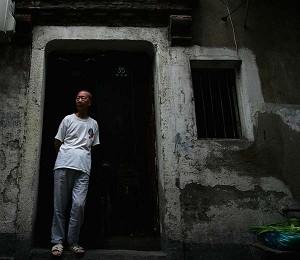WASHINGTON–Despite China’s rapid economic growth in recent years, Chinese workers’ salary increases slowly and the salary gap between employees of different positions and departments widens. Labor rights are not protected. According to the Xinhua news agency website, China’s state-run media, the gap could be as high as 100 times at some enterprises.
Xinhua reported on December 17 that Zhao Shuzheng, a human resource manager of a Beijing-based company said the wage gap between different positions and departments ranges from 10 to 100 times. She said: “The employees who are not happy with the difference don’t stand a chance of negotiating with their bosses, but have to switch to other companies.”
Xiao Ying, working at a foreign company in Beijing, said that the average employee only makes 3000-4000 yuan (about US$ 400) a month, while a middle management worker makes more than 100,000 yuan, which is 25 times the average.
The difference is not only reflected in the salary, but management also receives other benefits such as stock options, paid insurance policies, and reimbursement for social activities, whereas the average employee only earns a salary, which doesn’t increase for years.
A salary survey conducted by China’s Ministry of Labor and Social Security indicated that the ratio between total wages and gross domestic product (GDP) has not increased, but actually decreased in recent years.
At the same time, the widening income gap has caused discontent among average employees. Some economists say that the salary gap within business enterprises is reasonable. They say that the salary level should be determined by the quality of labor and the supply-demand relationship: Workers with different skills generate different amounts of wealth, which directly reflects on the gap in wages. They added that China’s current labor market is fully supplied, and the large number of rural migrant workers with ordinary skills lowers the income level of the low-wage workers.
However, other economists believe that if the gap were too wide, it would have a significant negative impact on business enterprises and society. Professor Hu Xingdou of the Economics Department of the Beijing Institute of Technology said the huge income gap indicates that the interests of vulnerable groups are not protected. He said: “Since China’s economic reform in late 1970’s, China’s economic growth is very fast...Since government authorities didn’t pay much attention to protecting the rights and interests of workers, the workers and farmers have almost no rights at all, which has caused the rapidly expanding gap between rich and poor in China.”
Some experts and scholars have said that the overall labor force prices are determined by the market mechanism, but whether to increase the wages and by how much shouldn’t be decided solely by the employers. Hu Xingdou said: “The gap between rich and poor in China is mainly due to the workers and farmers being deprived of rights. They have no rights to speak, to be heard, or to negotiate, and so they are in a passive status and being treated badly.”
